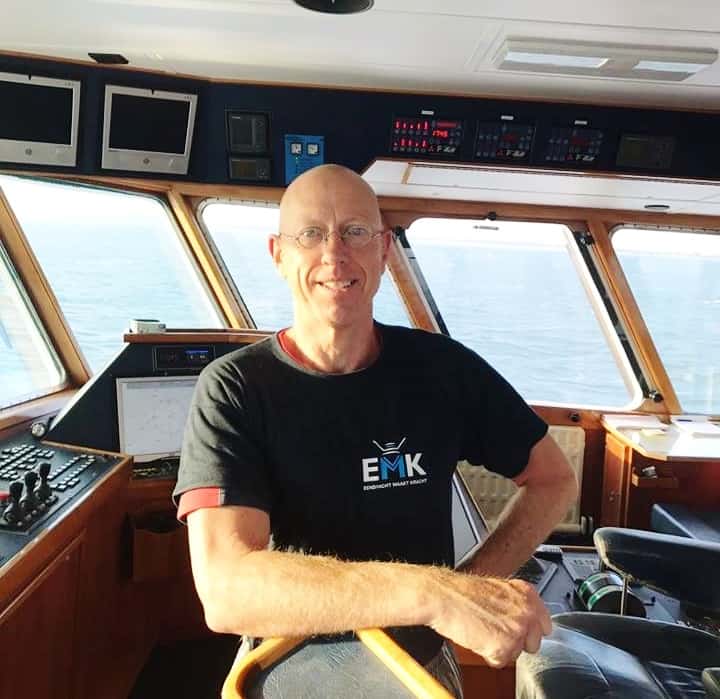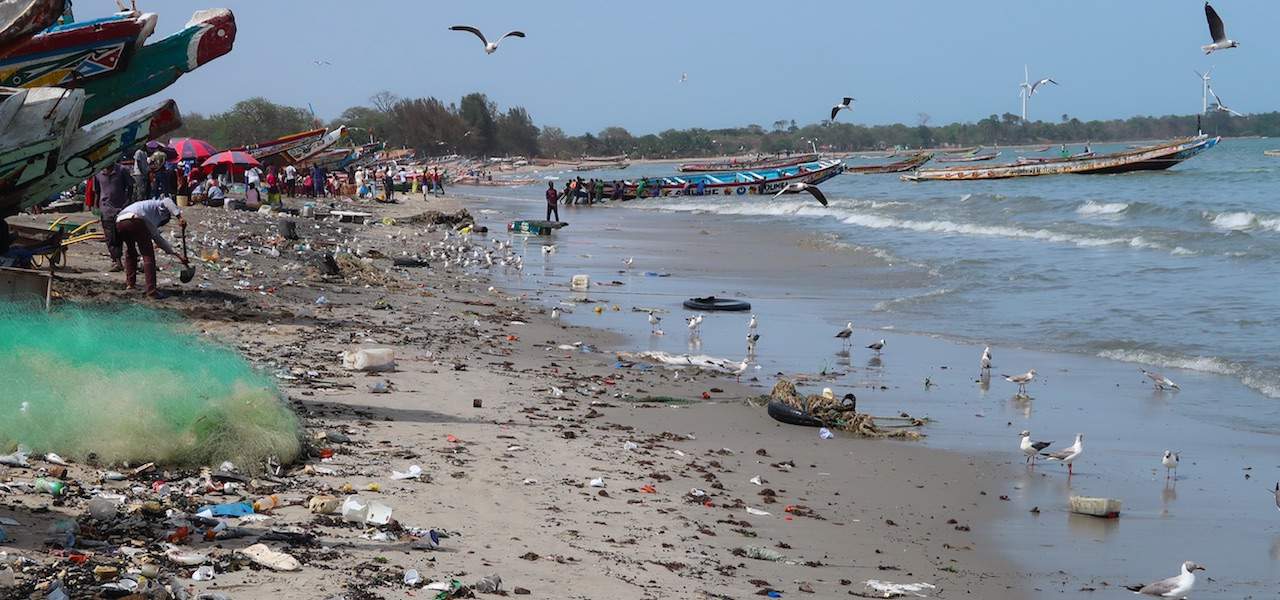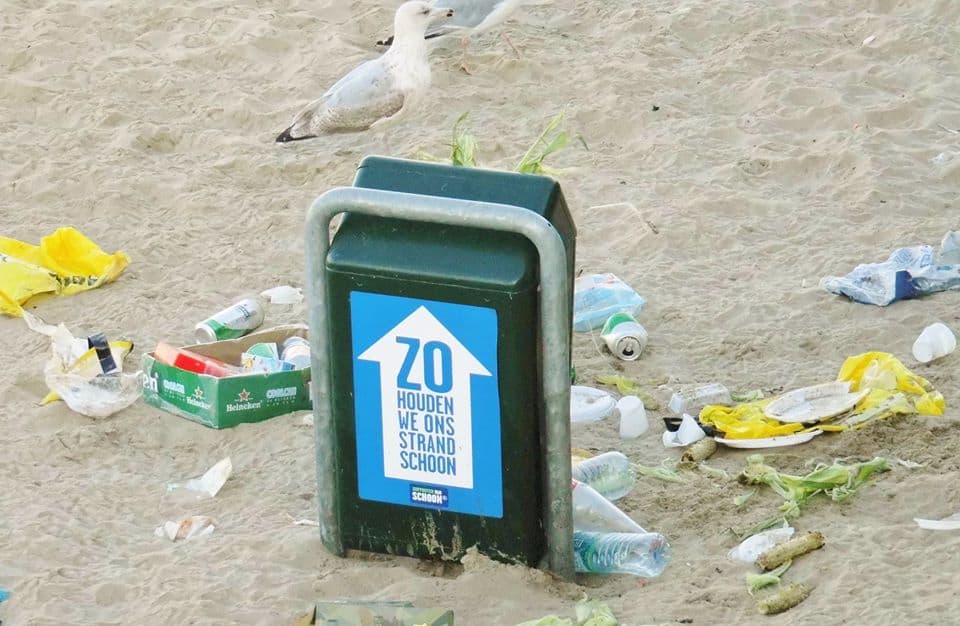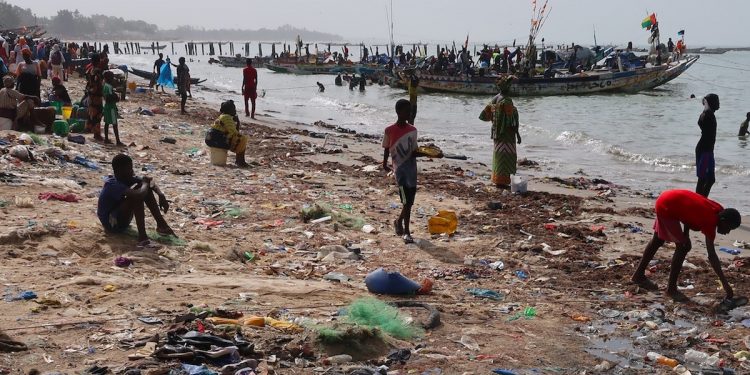NGOs are finally seeing that the problem of plastic marine waste is best tackled at the source, reports Willem den Heijer,
WWF is starting a number of projects in Asian countries. This is because the flow of plastic originates largely in that part of the world. But in Europe, and certainly along the Dutch beaches, we cannot sit back. Fishermen are still finding significant amounts of junk in their nets in some areas of the North Sea.

The seabed above the Wadden Islands is by no means free of the plastic junk caused by container ship MSC Zoë which lost a few hundred containers on its way to Bremerhaven just over a year ago. These were containers loaded with cheap plastic trinkets from Asia, where labour and raw material costs are particularly low.
Given the risks that container transport entails, we consumers should maybe ask ourselves whether we are not our buying habits are partly responsible for the waste that ends up in the sea. The more orders are placed, the greater the flow of goods between China and the west, and the greater the chance another such incident.
Africa also makes a major contribution to increasing the oceanic plastic soup. Travel operators tell their European customers that they value sustainability, but do very little at holiday destinations in The Gambia and Senegal. In some cases, outdated photographs are used of beaches that are practically spotless, but which in recent years have degenerated into receptacles of plastic packaging material.
Huge volumes of plastic waste clog beaches in The Gambia and Senegal, and the situation is little better further south in Sierra Leone and Nigeria.

It would be a courageous decision for European NGOs to focus on the West African coast. It is therefore useful to involve Western multinationals, as they also sell their plastic-packed products in those countries. Although sold cheaper than in Europe, this is still profitable business for large multinationals that are not interested in what happens next to plastic packaging in countries where most people are not wealthy.
Waste usually disappears onto a heap that is set on fire every few weeks. Spending money to have the garbage collected by carts is out of the question when buying food is more important. This is the reason why there are huge mountains of plastic waste everywhere.
It is also striking that nobody seems to care about the fact that the environment is heavily polluted. There are great opportunities for European NGOs to launch projects that could improve the situation and at the same time tackle employment.

Political parties and government leaders can say that education in poor countries is important for young people, but if there is no work, the situation is unlikely to improve.
Well organised projects for disposing of plastic waste could generate more profit in many areas than the millions that are transferred every year from Brussels to West African coastal states, much of which disappears into the pockets of corrupt officials and their relatives.
If a green organisation such as WFF or Greenpeace were to pick this up, they could kill environmental and humanitarian birds with one stone.
Closer to home, North Sea and Wadden Zee fishermen continue to make a major contribution to cleaning up plastic marine waste. Around the year 2000 the first fishing vessels began to land waste caught in their gear. At least 150 Dutch and Belgian skippers now participate in fishing for litter. Fishermen were also active in collecting waste after the MSC Zoë disaster, picking up garbage on a weekly basis, and at the same time testing biodegradable replacements for plastic dolly rope, which protect nets against abrasion.
With approach at the source of the problem, and some help from our fishermen, we could solve the problem on our own doorstep.
In that respect, the millions of Euros invested in Boyan Slat’s The Ocean Cleanup project for Europe may have been a waste of money. If that invention could ever be used effectively and efficiently, and scaled up, there plenty of work to be done on the other side of the world.









